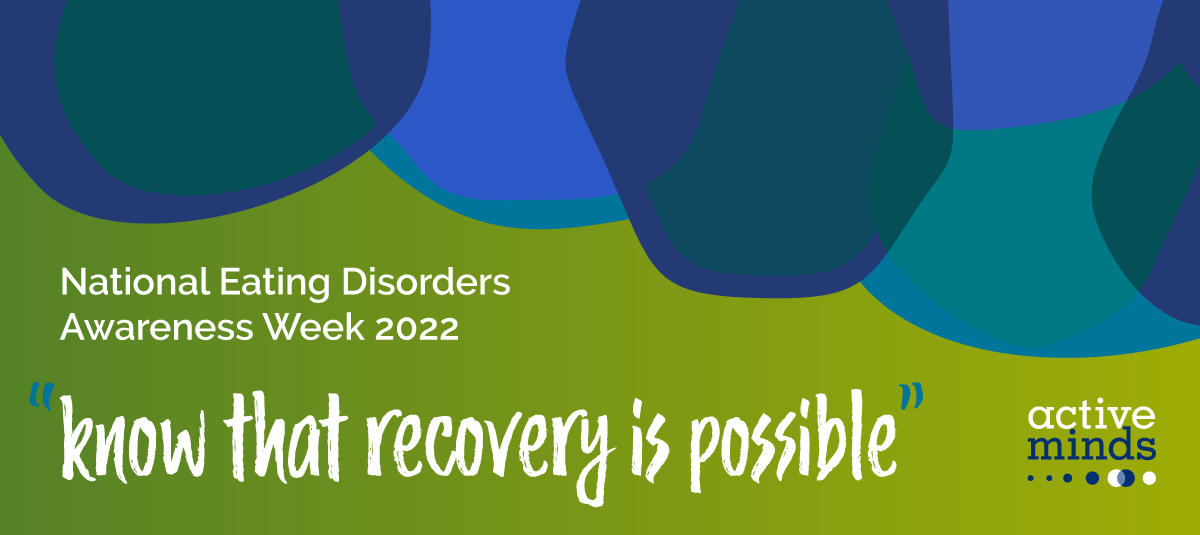It’s hard to pinpoint when exactly I started developing an eating disorder. Maybe it was when I started comparing myself to others, or perhaps it was when I started paying attention to caloric content and searching for weight loss methods. No matter when it started, all I know for sure is that the experiences and lessons learned along the way changed my life forever.
I was diagnosed with anorexia nervosa and social and generalized anxiety disorder at the age of 14. It has been almost ten years since I began my road to recovery, and I won’t lie and say that it was easy. It wasn’t, especially not in the beginning. During the first few years of my journey, I considered myself generally “recovered,” but I still found it difficult to eat certain foods for years. While I still struggle with eating sometimes, I have grown to appreciate food, and if there is one thing that I know for sure, it’s that sometimes, time is all you need, even as cliche as it sounds. While no two eating disorder journeys are the same, I hope that you can take solace in the fact that it does get better.
28.8 million Americans will have an eating disorder at some point in their lifetime, and this illness does not discriminate. You will likely know someone in your life who struggles with an eating disorder, or you may have experienced one or be experiencing one currently. No matter your proximity to recovery, I wanted to share some of my tips for staying on track. These do not replace seeking professional help but can be helpful in one’s day-to-day recovery journey.
Start Small and Take Your Time
It took some time before I was comfortable with eating certain foods. To this day, there are still some foods that I avoid. Nonetheless, what helped me was starting small. I slowly exposed myself to food categories like sweets and fast food as a means of acclimating myself, and over time, it became a lot easier to overlook nutritional information and labels. This sent me on a path of reinventing old habits. Instead of looking at the caloric content of something on a menu and thinking “That’s pushing it,” I conditioned myself to think “That’s not too bad.” My thought processes aren’t perfect, but that’s okay, because I know that recovery is an ongoing process that varies between individuals and takes time. Don’t push yourself to do anything that you’re not ready to do. That includes eating certain foods, exercising, or anything else that takes a toll on your mental well-being. It’s important to remember that the time between starting the race and reaching the finish line doesn’t matter, as long as you make it to the end.
Remember that Food is Fuel
Food is ingrained in society as holding a moral value, ranking along a continuum from good to bad. By attaching labels such as “good” or “bad,” we often overlook the experience and otherwise pleasure we may feel consuming it. All foods have something positive to give, and all food gives your body energy and nourishment. Food is fuel, and your body can’t run on an empty tank.
Notice Patterns
Notice recurring thought patterns and whether they are adaptive or maladaptive. Having maladaptive thought patterns is completely normal throughout recovery, but it’s important to distinguish them from more adaptive thoughts. Once you can recognize when and where these patterns arise, it’ll become easier to identify why and how they show up and what can be done to change that. Whenever I notice myself having a thought that doesn’t align with my recovery journey, I acknowledge it for what it is and confront its harmful consequences.
Like I said before, recovery is by no means easy. But, whether you personally struggle with an eating disorder or you know someone who does, know that recovery is possible. We are all more than our thoughts and more than our habits, and we’ll conquer this journey together.




